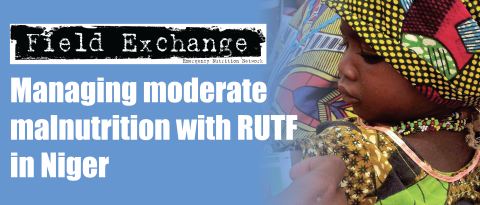Remittances during crises
Summary of published paper1
In disasters, remittances can play an important part in how people survive and recover. A recent Humanitarian Practice Group (HPG) briefing paper reports on a study into the role that remittances play in crises. The study was based on a review of relevant literature, as well as detailed case studies in Haiti, Pakistan, Somaliland, Sudan, Indonesia and Sri Lanka.
Globally, remittances have grown significantly in the last decade. In 2006, remittances through formal channels - banks and other financial institutions - were put at $268 billion; informal mechanisms, such as traditional money-transfer systems and hand-carried remittances - account for, perhaps, half as much again.
Humanitarian agencies and other actors concerned with the welfare of migrants have tended to neglect the importance of migration in livelihoods, or to see migration purely in negative terms, as a symptom of distress.
Remittances are often of importance following disasters, as they represent a relatively stable form of income, usually increase in times of crisis and directly contribute to household income. For example, in the months following the tsunami, the Sri Lankan Central Bank recorded a substantial increase in remittances. Remittance flows can be vulnerable to disruption during disasters. Transport and communications may fail, people may be displaced and, in the case of conflict, borders may be closed or communications shut down. Border closures and restrictions on movement due to the conflict in Darfur have had devastating consequences for people reliant on hand-carried remittances from family members working in Libya, Chad and Saudi Arabia. Physical damage to people's homes and property may include the loss or destruction of documentation needed to access remittances.
The study findings have important implications for humanitarian action in disaster risk reduction, relief and recovery. Helping in the restoration of remittance flows may be a quick and effective way of supporting livelihoods recovery and also impact the rest of the community
In responding to crises and disasters, aid agencies should continue to develop assessment approaches that more explicitly take account of the important role migration and remittances play in people's livelihoods. However, as people are understandably reticent to talk about remittance receipts openly, for fear that they will receive less aid, it may be necessary to draw upon pre-disaster secondary data about migration and remittances and use qualitative approaches to understand the impact of a crisis on remittances.
Humanitarian agencies also need to design their assistance programmes in ways that complement and enhance remittance flows. For example, agencies have used existing remittance systems, such as 'hawala2,' in their aid programming and cash assistance may open up access to financial institutions for recipients.
Agencies also need to account for migration in programme design, e.g. cash or food for work can restrict mobility.
In addition, remittances may be supported by polices that help cut the cost and bureaucratic difficulty of sending them, measures to improve the legal status and level of integration of immigrants within host societies, and steps to promote access to employment and education. Replacing lost documents is usually a government responsibility, but where a government is unable or unwilling to do this, aid agencies might be able to provide identity cards linked to beneficiary registration.
All disaster-affected populations should have rapid access to national and international telecommunications. This might mean setting up internet cafes in displacement or refugee camps, distributing mobile phones and working with private sector companies to establish or re-establish mobile networks or supporting small scale enterprises providing internet or mobile phone access.
Remittance senders should also be considered by aid actors and governments responding to emergencies. The need to return home to help loved ones may mean that jobs abroad are lost or migrant status is rescinded, forcing migrants further into debt. Governments could consider special, free visa measures to enable people to return home during emergencies without jeopardising their migrant status. Assistance could be given to cover the costs of transport. Employers of migrant workers could be encouraged to grant compassionate leave to allow people to go home, and remittance transfer companies could be encouraged to waive or reduce fees for sending money to disaster-affected countries.
1Savage. K and Harvey. P (2007). Remittances during crises: implications for humanitarian response. HPG Briefing Paper 26. May 2007
2Hawala (also referred to as hundi) is an alternative or parallel remittance system that originated in South Asia but is now used extensively worldwide. The components of hawala that distinguish it from other remittance systems are trust and the extensive use of connections such as family relationships or regional affiliations.
Imported from FEX website


